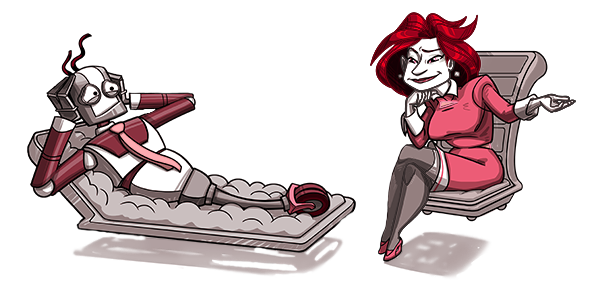Most surprising and disappointing was the fact that the article featured quotes solely from economists; not a single representative of the robotics industry was referenced. I know I’m not alone in questioning the logic and wisdom of that approach! If an article is going to insinuate that robots are to blame for a myriad of economic maladies, shouldn’t we expect inquisitive minds behind it to include at least a few cogent viewpoints from the industry leaders “at fault”?
Here are a few examples of such expert commentary that The NY Times could have sought and included:
From Jeff Burnstein, President of the Robotics Industries Association (RIA): “In 2010, after one of the worst recessions in our nation’s history, unemployment in the U.S. was nearing 10%. Since then, amidst record years for robot sales, unemployment has steadily fallen toward pre-recessionary levels. ”
From Dr. David Mindell, professor of aeronautics, astronautics and the history of technology at MIT: “Half of the things people are doing were not even things people were doing 10-20 years ago. Our definitions of work and jobs always evolve alongside technology.”
From Robotics Physicist Dr. Mark Tilden: “The anxiety occurs when robots have anthropomorphic similarities that people wrongly associate with human ambition. When a (semi) humanoid takes away the whole menial job that used to be done by a person, there’s an instinctive focus to blame the machine, not the corporation optimizing its bottom line. Optimizing tasks to reduce costs is a good thing. It’s just a shame we haven’t kept up with the social reforms needed so people who had those jobs before could find better jobs now.”
And from Professor Hiroshi Ishiguro: “Robots are a natural extension of technology such as cars or smartphones and people have evolved because of such technology. Robots allow humanity to advance.”
The rise of robotics in the workplace is about evolution, not revolution. Displacement, yes. Replacement, no. Think transformation and adaptation, not annihilation. Though the article does mention that technology is accelerating at an unprecedented pace, I’m one of a rapidly growing group of people who understand that it’s not a matter of “them” (robots) vs. “us” (humans). It’s about merging technology with artificial intelligence. In other words, robotic capabilities should be viewed as enhancements to the human condition, not detriments to it.
For example, within the next 10 years, wearable, “smart” robotic technologies such as exoskeletons will allow millions of people with injuries and disabilities to remain on the job instead of having to receive workers’ compensation. For example, a “telepresence” robot now allows a worker who can no longer travel to stay home while remotely inspecting a manufacturing line anywhere in the United States. How does the Dept. of Labor address that? Will they take into account the savings in disability payments in such cases?
I can only hope that the NY Times will undertake more comprehensive research in the future, especially when they decide to publish an article they can rightly assume will fuel one of society’s growing (yet irrational) fears.


Recent Comments